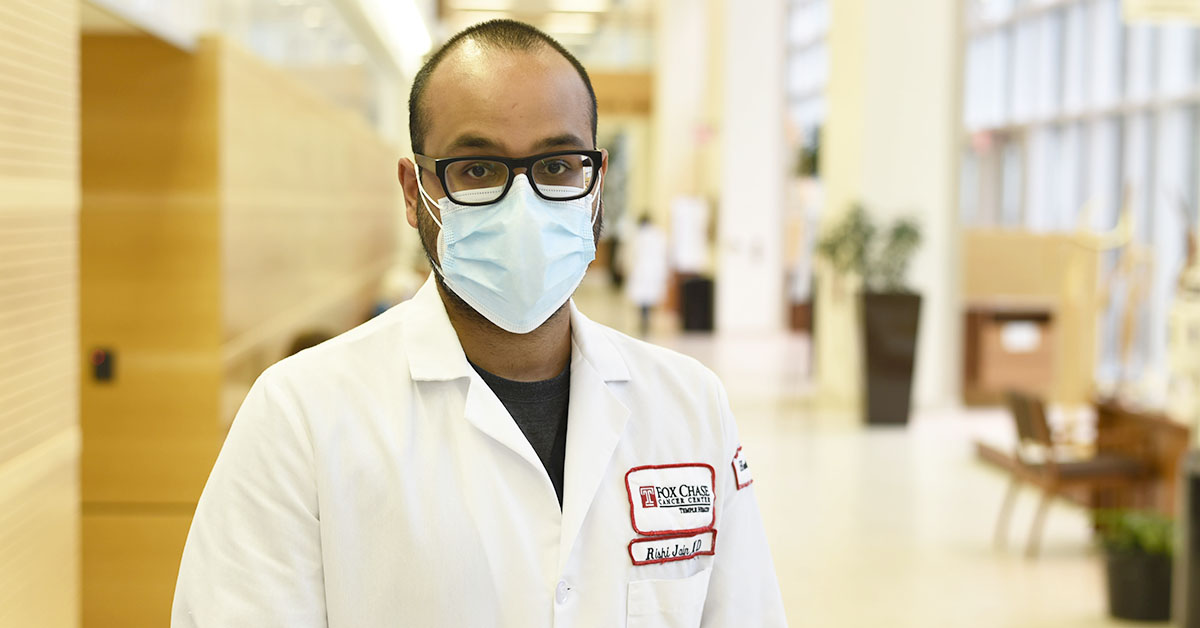
PHILADELPHIA (June 9, 2021)—Researchers at Fox Chase Cancer Center investigating psychological distress in patients with metastatic cancer enrolling in phase 1 clinical trials found that although physical stressors did not strongly relate to patients’ overall level of distress, emotional, family, and practical stressors did.
“As oncologists, we do a good job of preparing our patients for the physical stressors that they’ll face and we generally know how to address these stressors,” said Rishi Jain, MD, MS, DABOM, assistant professor in the Department of Hematology/Oncology and lead study author.
“However, practical, family, and emotional problems are not necessarily stressors we screen for routinely,” added Jain, who conducted the study with Michael J. Hall, MD, MS, chair of the Department of Clinical Genetics, and other Fox Chase colleagues.
The 87 patients enrolled in the study completed the National Comprehensive Cancer Network Distress Thermometer and Problem List for Patients, and other measures of anxiety and depression, as they initiated a phase 1 clinical trial. Researchers found high overall levels of distress (51%) and anxiety (28%) in the study cohort.
They also noted significant correlations between overall distress and practical, family, and emotional problems. Practical stressors include childcare, housing, and transportation, Jain said. Family stressors include problems with one’s partner or children. Emotional stressors include depression, fear, and worry.
“We found, interestingly, that physical problems, including pain and other symptoms related to the cancer or the prior treatments, were not actually associated with overall distress,” Jain said.
Because phase 1 clinical trials are generally the first time a new therapeutic is being tested in humans, Jain said, researchers include such safeguards as extra tests and lab work to monitor patients closely. These safeguards, although important for patient safety, can become time intensive and exacerbate patient stress levels, he said. “These are big commitments that patients are making.”
The study highlighted the need for providers to prioritize screening patients for practical, family, and emotional stressors during cancer treatment, especially at the start of a phase 1 clinical trial, Jain said. Without systematically asking patients about stressors, he said, many solvable problems could be missed.
Physicians who discover their patient is dealing with a practical stressor could refer them to a social worker or help them find other resources, Jain said. When family or emotional problems arise, he added, an oncologist could connect the patient with a psychologist or psychiatrist who could assist with therapy or medication if needed.
“We need to do a better job of having a multidisciplinary approach to these patients, to incorporate our social work colleagues, our psychology colleagues, and others to help treat the whole patient,” Jain said.
The paper, Psychological Distress in Patients With Metastatic Cancer Enrolling on Phase I Clinical Trials, was published in the Journal of Cancer Survivorship: Research and Practice.